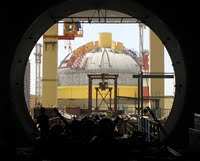
For weeks, U.S. and Russian government representatives have stated that they expect a new nuclear arms control treaty to be signed imminently. Nevertheless, the negotiations continue to drag on. Most recently, U.S. National Security Adviser James Jones and the chairman of the Joint Chiefs of Staff, Adm. Mike Mullen, visited Moscow on Jan. 22-23 to discuss defense issues with their Russian counterparts. Their interlocutors included the head of the General Staff of the Russian Armed Forces and other senior military officials, and members of the Russian team negotiating a replacement to the 1991 Russia-U.S. Strategic Arms Reductions Treaty (START) that […]




